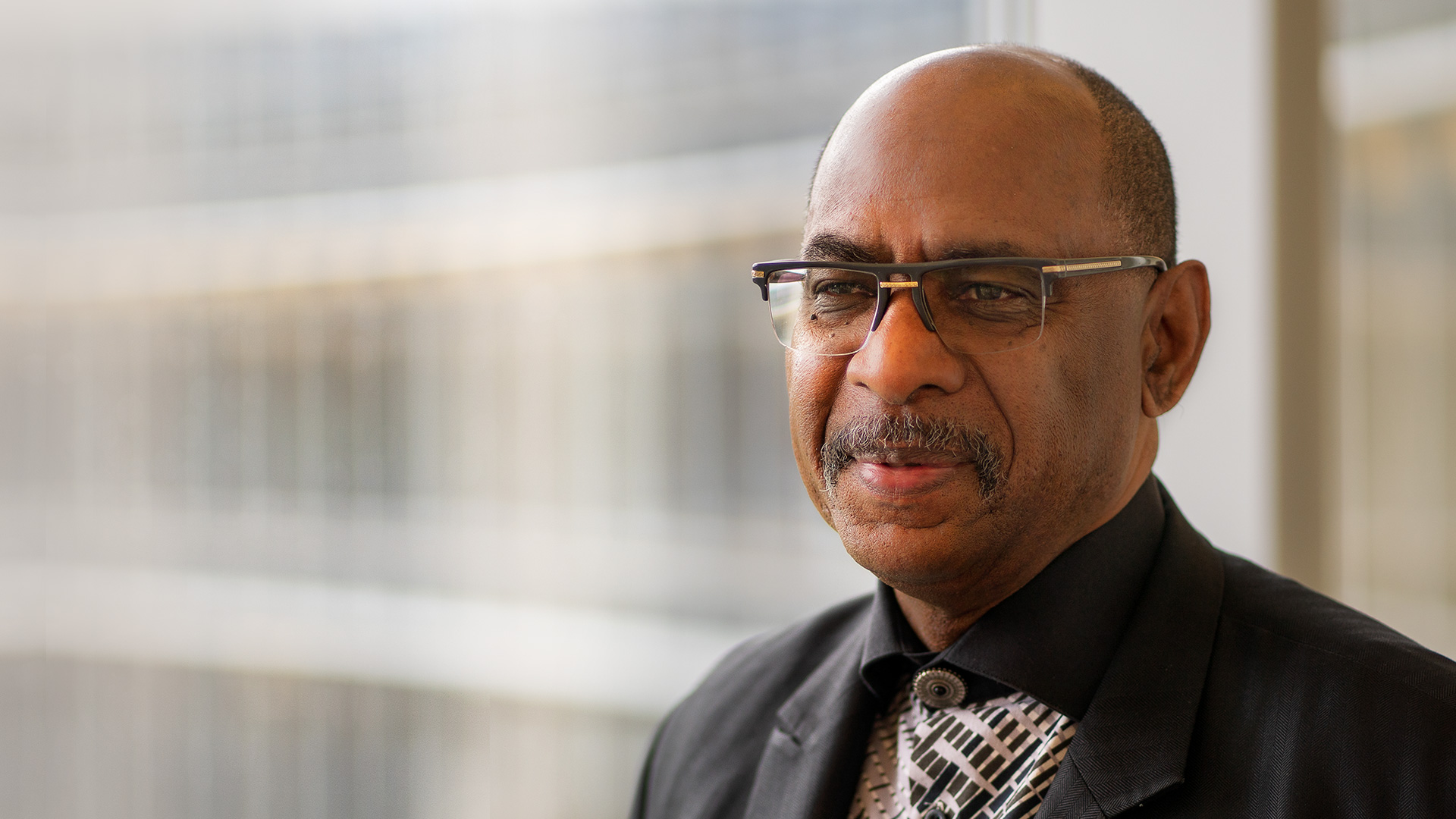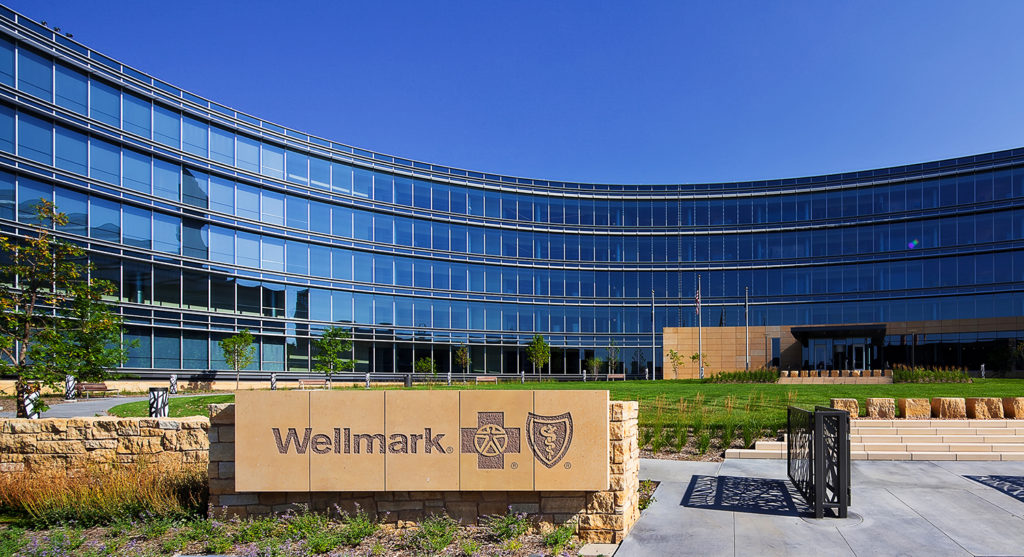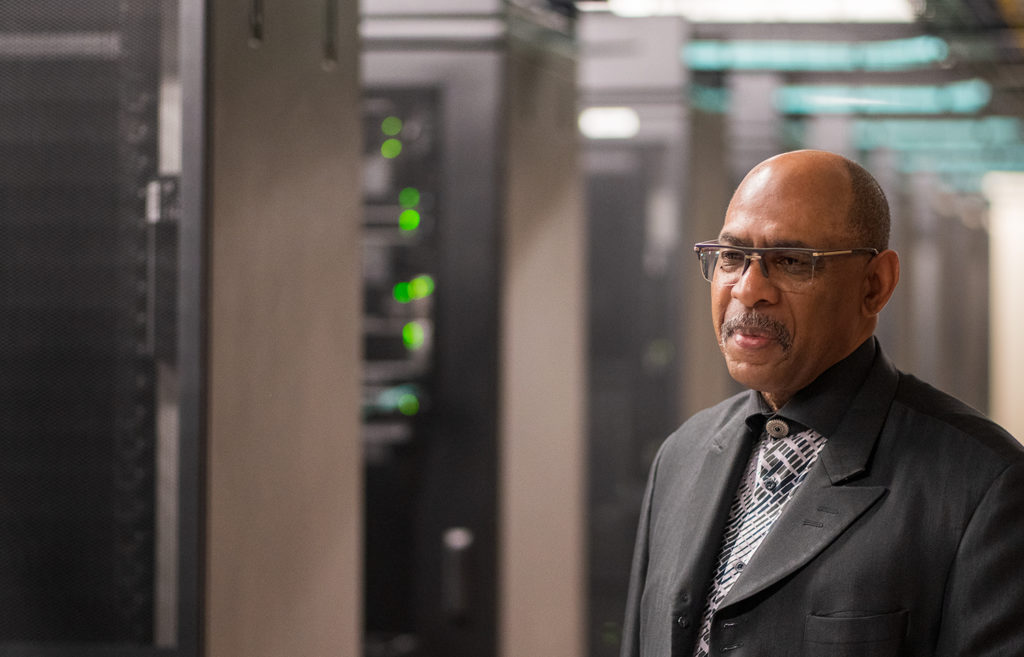
Ike Brown
Ike Brown, a Des Moines native and graduate of Drake University, is a team leader at Wellmark Blue Cross and Blue Shield, where he oversees data management and recovery. In his 21-year tenure at the company, he’s worked steadfastly to facilitate conversations across departments and communities, encouraging people from different backgrounds to share their experiences. He says having a diverse workforce, with a wide range of ideas and perspectives, is crucial to ensuring that a business not only survives but thrives — culturally and financially.
What is your role at Wellmark?
I’ve been at Wellmark for the last 21-plus years and currently serve as a team leader for the data center in the data recovery group. I’m responsible for making sure that all of Wellmark’s corporate data is backed up in a timely fashion. I’m also responsible for data protection, and I lead our data recovery and disaster recovery team. Finally, I’m responsible for all of Wellmark’s automated file transfers
What’s the most significant change you’ve seen in terms of technological enhancements?
There’s a lot of focus on migrating applications to the cloud. The cloud, in our perspective, is going to allow us to scale up or down based on usage and avoid wasting any resources.
What are some tried-and-true recovery processes that could be translatable to other companies?
First, ensure you have a very strong backup system in place; second, be as agile as possible. Companies need to possess these skills in order to be competitive. Companies should also be responsive to the needs of business units and other departments relying on them.

Did you always gravitate toward technology growing up?
Even as early as high school, I had an inclination to be an electrician. I was really fortunate to go to a technical vocational high school, Des Moines Technical High School, where we had a core area where we learned an actual trade. I learned industrial electronics. But I decided that I didn’t want to get shocked or electrocuted, so I transitioned into computer programming. We studied Basic Assembler Language, BAL, then I learned something called Fortran. I decided I wanted to pursue that as a career, and I continued my formal education at the Electronic Computer Programming Institute. And then I went to Grand View University and Drake University, and I had a lot of on-the-job training, which led me to the career I have today.
You began to forge a path of brotherhood and inclusiveness at Wellmark alongside your coworker Brad Titus. What is “Brad and Ike’s Excellent Adventure”? And what strides has Wellmark made to bridge racial gaps that might have presented themselves?
In addition to being in technology for 40-plus years, I’ve also been blessed to serve as a senior pastor of a Baptist church for almost 25 years now. I have a passion, a love for people from all walks of life. I love everybody no matter what their station in life. That’s something that’s ingrained in my nature and my heart, to try to have a spirit of reconciliation
We live in a time where there’s a big divide in our nation. So a coworker, Brad Titus, and I decided to get together, and we read this book called Under Our Skin by Benjamin Watson to try to learn about each other — somebody who may not look like you, or live like you, or be from the same culture as you—to see what those differences are, and how we can leverage strength from them. It was an opportunity to get to know Brad better and collaborate, and we’re continuing this effort.
I also serve with Brad on Wellmark’s inclusion council, where we try to look at the differences, in terms of workforce, and how we can leverage that for the benefit of Wellmark. Because there is strength in diversity. There is strength in being inclusive. And we try to advocate for that. It’s not “we” versus “them”; it’s “us.” And Brad and I took that a step further. We asked, How can we come together through our jobs, through our religion, through our families, through our relationship, to kind of bridge those gaps? We shared our experience with Wellmark employees in an article we called “Brad and Ike’s Excellent Adventure,” but our work has just begun — and we hope to continue sharing our story with others.
Because there is strength in diversity. There is strength in being inclusive.
Outside of Wellmark, and your work as a pastor, how do you share your time and talent?
I’m involved in a lot of community events. I’ve volunteered in Wellmark’s booth at the Asian festival, CelebrAsian, as well as at the Latino heritage festival. Anytime I have an opportunity to invest and involve myself and other communities, I take advantage of that. So that’s really been rewarding to me.
Who are your mentors? What lessons have you gleaned from them?
I really look at [founder and CEO of Electronic Data Systems and Perot Systems] Ross Perot—his leadership style, his work ethic, his demand for excellence. I really forged my management principles based on people like him. I’m also inspired by [former chairman and CEO of GE] Jack Welch, and [New York Times bestselling author] John Maxwell, who’s put together a lot of information on leadership principles. I even look to Stephen Covey, who wrote The Seven Habits of Highly Effective People. And I read books about how we can get people to trust us. We’ve got to make sure that the people who support us trust us. They have to believe in us. We want to have a cohesive effort by team members working together, and that can’t be the case without trust being in place
If a young mind came to you and said, I’m considering a degree or a career in technology, what advice would you give them?
Well, I’d give them the same advice I gave some high school students back in the mid-1970s. Now, I’m really dating myself here, but I wrote a booklet for Des Moines Public Schools in the ‘70s called “Data Processing Means Opportunity.” Back then, we called it “data processing”; today, we call it information technology. But the idea is basically the same. If you look around today, technology and computers are pervading all levels of our society. Just imagine how it’ll be 10 years from now: technology is going to be even more pervasive, with artificial intelligence, driverless cars, things of that nature.
Technology is everywhere. We can’t escape it. For a company to be competitive, they have to keep investing a substantial amount of money in technology to be nimble, to bring things to market quickly — more quickly than their competitors. If they don’t, they’ll be left behind. So technology is the key to a company being profitable, being viable, and being at the forefront. And that means more opportunities for more tech professionals. Pursuing tech will keep you relevant in a competitive market.
The Catalyst series focuses on underrepresented groups in technology. Why is it important to you, and to Wellmark, to have different backgrounds in tech?
Because there’s strength in diversity, in bringing new ideas to the table. You could even benefit from a monetary perspective. Looking at the African American community, there’s a disparity right now. It’s imperative we get more African Americans involved in technology. Since I’ve lived here all my life, I’ve taken great steps to try to recruit minorities.
I want to get other minorities, other underprivileged individuals, involved as well—not just African Americans. I want to get Latinos involved. I want to get people from the Asian community involved. Whoever is willing to sit down and talk with me. We have to do a better job of informing individuals of the opportunities that are available.

Equip your people with the knowledge and education necessary so they can perform their jobs. And it doesn’t stop. It’s a continual effort.
In times of urgency, when you need to display confidence and knowledge to your team, where and to whom do you look for inspiration?
Staying cool, calm, and collected is crucial. Being in tech, you’re going to have production snafus, you’re going to have outages, and you can’t get bent out of shape. You have to provide leadership. You have to say, okay, let’s take a step back and look at what changed and how we can resolve it. Because as far as a user or the business is concerned, they don’t care what caused a problem — they just want it fixed. And once we get the problem fixed, we have to take a step back and learn from that mistake. Not only fixing the mistake, but learning how we can prevent any future recurrence of that.
I really believe in education, education, education. Equip your people with the knowledge and education necessary so they can perform their jobs. And it doesn’t stop. It’s a continual effort. Technology changes so fast, and we’ve got to stay abreast of all the technological advances, like artificial intelligence, for example.
Wellmark is investing a lot of money in automation and orchestration and robotics, and I want to make sure my people stay abreast of all that. Because it’s going to open up more opportunities for them as they progress on their career path. Getting people in the right place at the right time, giving them special projects, meeting our corporate goals and objectives on innovations, and equipping them with the experience, education, and knowledge they need to do their jobs in an exemplary or successful fashion—that’s my responsibility. That’s Wellmark’s responsibility.
I commend Wellmark for being liberal in their tuition reimbursement program and their educational offerings. In my somewhat biased opinion, I think Wellmark is an employer of choice based on their inclusion initiative, their equity, their fairness, their benefits, and their CEO, John Forsyth. He’s a visionary, and he walks the talk. We’re really grateful to be blessed by a leader who believes in people and really wants to help enhance the value of the human asset.
What do you see on the horizon for Iowa’s technology industry?
With data centers and tech companies moving into Iowa, such as Facebook and Amazon, plus cloud capabilities, there will be opportunities for developers, business systems analysts, data protection analysts, even cloud engineers. There’s a whole array of job opportunities just based on the cloud. We have no idea what’s going to be the new big thing five years from now. Our TVs are intelligent; our refrigerators are intelligent; our cars are intelligent. And we’re barely scratching the surface. The sky’s the limit on what new things could be developed, what new breakthroughs could come forward.
When you walk out this door for the last time, what do you want to leave for Iowa, for Wellmark, for the technology industry?
I want to leave a legacy that’s predicated on fairness, equitability, and opportunity. To make sure people understand that if there are any walls of prejudice or bias, I helped to try to break those walls down. Not only from a vocational perspective, but also a relational perspective, between the races. And I’m going to do everything in my power before I retire to make sure that more underprivileged people are brought into the technology industry.
I’m going to do everything in my power before I retire to make sure that more underprivileged people are brought into the technology industry.

